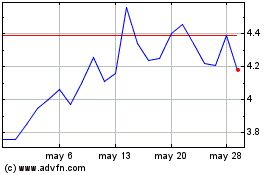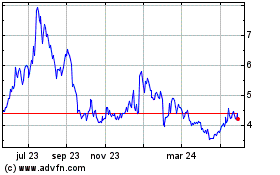The 90-tonne Automated Fiber Placement (AFP)
machine has been custom-designed and built for Rocket Lab and is
expected to save around 150,000 manufacturing hours in the Neutron
rocket’s production process.
Rocket Lab USA, Inc. (Nasdaq: RKLB) (“Rocket Lab” or “the
Company”), a global leader in launch services and space systems,
today announced it has begun installation of the largest automated
fiber placement (AFP) machine of its kind into the Company’s
Neutron rocket production line in Middle River, MD. The AFP machine
will enable Rocket Lab to automate production of the largest carbon
composite rocket structures in history.
This press release features multimedia. View
the full release here:
https://www.businesswire.com/news/home/20240808270093/en/
Rocket Lab's automated fiber placement
machine which will build large composite structures for the Neutron
rocket. (Photo: Business Wire)
The custom-built 99 ton (90 tonne), 39 ft tall (12-meter)
robotic machine, American-made by Electroimpact in Washington, has
just completed final acceptance testing with the manufacturer and
installation has begun at Rocket Lab’s Space Structures Complex in
Middle River, Maryland. The new machine will automate the
production of all large composite structures of the Neutron launch
vehicle including the panels that make up the 91 ft (28 meter)
length interstage and fairing, 22.9 ft (7 meter) diameter first
stage, and the 16.4 ft (5 meter) diameter second stage tank.
The autonomous machine can move up to 98 ft (30 meters) in
length and lay down continuous carbon fiber composite at a rate of
328 ft (100 meters) per minute. The AFP machine also has a fully
automated real-time inspection system that hunts for miniscule
defects throughout the laminated carbon composite and alerts the
machine operator of any issues before the machine begins laying
down the next layer, providing additional assurance that these
critical structures of the launch vehicle meet Rocket Lab’s
high-quality standards required for reusable Neutron launches.
As Neutron’s carbon composite structures move into full-scale
production, this autonomous machine is expected to introduce
significant time-savings of 150,000+ manufacturing hours into the
production process.
Rocket Lab founder and CEO, Sir Peter Beck, says: “As we build
the world’s largest carbon composite rocket, it makes sense that we
require a world-first carbon composite fiber placement machine.
We’re combining our proprietary flight-proven carbon composite
technology, additive manufacturing, and autonomous robotics to
design and build large-scale aerospace components at a pace that
will support not only Neutron’s launch cadence, but support
Electron and carbon composites structures for our spacecraft
customers too. We worked closely with our excellent partners at
Electroimpact to create this robot and we’re thrilled with the
results. It’s an innovative machine producing a next-generation
rocket from one of the birthplaces of the aerospace industry in
Baltimore, and we can’t wait to see its first carbon composite
printed panels come off the production line soon.”
The AFP machine will also be leveraged to print smaller carbon
composite Neutron structures, first stages of Rocket Lab’s Electron
launch vehicle, and other flight-proven carbon composite structures
for space including spacecraft structural panels and assemblies,
solar panel substrates, carbon composite tanks and primary
structures, and custom projects for the aerospace industry.
About Neutron
Neutron is the new medium-lift reusable launch vehicle by Rocket
Lab. Capable of carrying up to 13,000 kg to low Earth orbit,
Neutron is designed to deliver constellations of satellites to
space at once, important national security missions, and human
exploration beyond Earth’s orbit. Neutron will be the world’s first
medium-lift carbon composite rocket, building off of Rocket Lab’s
proprietary and flight-proven techniques utilized across 50+
launches of its Electron carbon composite small orbital launch
vehicle. Powering Neutron is Rocket Lab’s new 3D printed reusable
rocket engine Archimedes, an oxygen-rich staged combustion engine
using liquid oxygen and methane propellants that is designed for
rapid reusability, deep throttle ability for multiple engine burns
in space, and for propulsive landings when returning to the launch
site. Neutron will launch and land at its own dedicated launch and
test range within Rocket Lab Launch Complex 3 at the Mid-Atlantic
Regional Spaceport on Wallops Island, Virginia, starting in 2025.
For more information, visit
https://www.rocketlabusa.com/launch/neutron/
+ About Rocket Lab
Founded in 2006, Rocket Lab is an end-to-end space company with
an established track record of mission success. We deliver reliable
launch services, satellite manufacture, spacecraft components, and
on-orbit management solutions that make it faster, easier, and more
affordable to access space. Headquartered in Long Beach,
California, Rocket Lab designs and manufactures the Electron small
orbital launch vehicle, our family of spacecraft platforms, and the
Company is developing the large Neutron launch vehicle for
constellation deployment. Since its first orbital launch in January
2018, Rocket Lab’s Electron launch vehicle has become the second
most frequently launched U.S. rocket annually and has delivered 191
satellites to orbit for private and public sector organizations,
enabling operations in national security, scientific research,
space debris mitigation, Earth observation, climate monitoring, and
communications. Rocket Lab spacecraft have been selected to support
NASA missions to the Moon and Mars, as well as the first private
commercial mission to Venus. Rocket Lab has three launch pads at
two launch sites, including two launch pads at a private orbital
launch site located in New Zealand and a third launch pad in
Virginia. To learn more, visit www.rocketlabusa.com
+ Forward Looking Statements
This press release contains forward-looking statements within
the meaning of the Private Securities Litigation Reform Act of
1995. We intend such forward-looking statements to be covered by
the safe harbor provisions for forward looking statements contained
in Section 27A of the Securities Act of 1933, as amended (the
“Securities Act”) and Section 21E of the Securities Exchange Act of
1934, as amended (the “Exchange Act”). All statements contained in
this press release other than statements of historical fact,
including, without limitation, statements regarding our launch and
space systems operations, launch schedule and window, safe and
repeatable access to space, Neutron development, operational
expansion and business strategy are forward-looking statements. The
words “believe,” “may,” “will,” “estimate,” “potential,”
“continue,” “anticipate,” “intend,” “expect,” “strategy,” “future,”
“could,” “would,” “project,” “plan,” “target,” and similar
expressions are intended to identify forward-looking statements,
though not all forward-looking statements use these words or
expressions. These statements are neither promises nor guarantees,
but involve known and unknown risks, uncertainties and other
important factors that may cause our actual results, performance or
achievements to be materially different from any future results,
performance or achievements expressed or implied by the
forward-looking statements, including but not limited to the
factors, risks and uncertainties included in our Annual Report on
Form 10-K for the fiscal year ended December 31, 2023, as such
factors may be updated from time to time in our other filings with
the Securities and Exchange Commission (the “SEC”), accessible on
the SEC’s website at www.sec.gov and the Investor Relations section
of our website at www.rocketlabusa.com, which could cause our
actual results to differ materially from those indicated by the
forward-looking statements made in this press release. Any such
forward-looking statements represent management’s estimates as of
the date of this press release. While we may elect to update such
forward-looking statements at some point in the future, we disclaim
any obligation to do so, even if subsequent events cause our views
to change.
View source
version on businesswire.com: https://www.businesswire.com/news/home/20240808270093/en/
+ Rocket Lab Media Contact Morgan Connaughton
media@rocketlabusa.com
Rocket Lab USA (NASDAQ:RKLB)
Gráfica de Acción Histórica
De Nov 2024 a Dic 2024

Rocket Lab USA (NASDAQ:RKLB)
Gráfica de Acción Histórica
De Dic 2023 a Dic 2024
